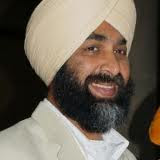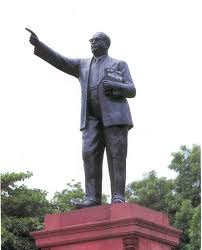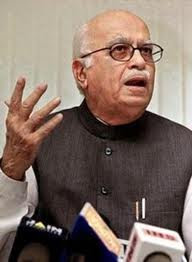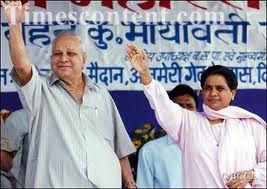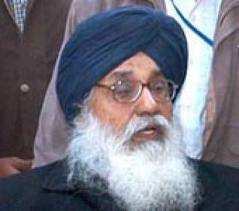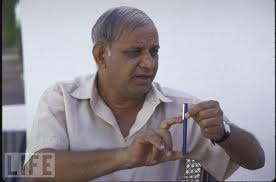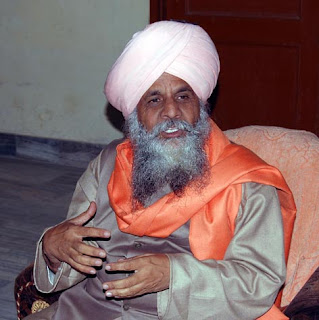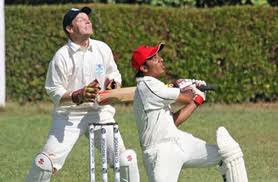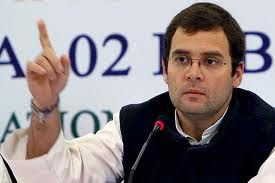On December 6, I wrote about the relevance of Ambedkar in the India of today. It was further amplified by the speakers on the tributes giving function on December 6 by the Ambedkar Bhawan Trust at the Am
 bedkar Bhawan itself. It was a successful function but I am sorry to say that I expected more in the audience. The fault does not pertain to the organizers but the fragmented society at large. Ambedkar Bhawan, I recall vividly, was started sometime in early sixties by the followers of Ambedkar under the flag and banner of the then Republican Party. Ambedkar was still not accepted as a leader of standing, as he clearly deserved, by the Congress Party and the likes of the Jan Sangh/BJP and others. It was a flawed thinking. It is satisfying to note that by now and by his own right Dr. B.R. Ambedkar got must needed and well-earned recognition in the later years. Dr. Ambedkar was a great son of India. It will be only befitting if his mission and thought becomes regular curricula in the schools and universities. It will not only strengthen the democratic edifice of the country but also will help greatly in creating a just social order. Ambedkar Bhawan at Nakodar Road is a center of community activities. I only wish that it comes as a magnificent place befitting to the memory of Dr. Ambedkar. Nevertheless Ambedkar Bhawan Trust under the stewardship of Lahori Ram Balley, Gian Singh Bal, Ramesh Chand Paul and others and also its current President RPS Pawar are doing well and they deserve appreciation for good work done.
bedkar Bhawan itself. It was a successful function but I am sorry to say that I expected more in the audience. The fault does not pertain to the organizers but the fragmented society at large. Ambedkar Bhawan, I recall vividly, was started sometime in early sixties by the followers of Ambedkar under the flag and banner of the then Republican Party. Ambedkar was still not accepted as a leader of standing, as he clearly deserved, by the Congress Party and the likes of the Jan Sangh/BJP and others. It was a flawed thinking. It is satisfying to note that by now and by his own right Dr. B.R. Ambedkar got must needed and well-earned recognition in the later years. Dr. Ambedkar was a great son of India. It will be only befitting if his mission and thought becomes regular curricula in the schools and universities. It will not only strengthen the democratic edifice of the country but also will help greatly in creating a just social order. Ambedkar Bhawan at Nakodar Road is a center of community activities. I only wish that it comes as a magnificent place befitting to the memory of Dr. Ambedkar. Nevertheless Ambedkar Bhawan Trust under the stewardship of Lahori Ram Balley, Gian Singh Bal, Ramesh Chand Paul and others and also its current President RPS Pawar are doing well and they deserve appreciation for good work done.Coming to the function, Member of Parliament Mohinder Singh Kaypee was the Chief Guest.
 President of the Ambedkar Bhawan Trust RPS Pawar welcoming the guests made very valid points that it was only because of the struggle of Dr. Ambedkar that we (the empowered members of the society holding official positions) could reach, where we were, in caste ridden and unequal social set up. He also referred to the vast majority of the Dalit and backward communities in the State of Punjab and said that unfortunately they were not united and as such could not get both in politics and otherwise as it shall be. Pawar cajoled the political leaders of the society to think and fight for the due space and place for them in the establishment. It was a delight to listen to Lahori Ram Balley. I was happy to see that, in spite his ripe age of around 80 plus, the spirit and delivery was just e
President of the Ambedkar Bhawan Trust RPS Pawar welcoming the guests made very valid points that it was only because of the struggle of Dr. Ambedkar that we (the empowered members of the society holding official positions) could reach, where we were, in caste ridden and unequal social set up. He also referred to the vast majority of the Dalit and backward communities in the State of Punjab and said that unfortunately they were not united and as such could not get both in politics and otherwise as it shall be. Pawar cajoled the political leaders of the society to think and fight for the due space and place for them in the establishment. It was a delight to listen to Lahori Ram Balley. I was happy to see that, in spite his ripe age of around 80 plus, the spirit and delivery was just e xcellent and convincing. His tributes to Ambedkar were first hand as he had the good fortune to work with Dr. Ambedkar. He told me during my interaction with him that he resigned from a lucrative job on December 6, 1956, the day Ambedkar died and joined the mission whole heartily. RC Paul and Dr. Ram Lal Jassi also spoke at the function. Chief Guest Mohinder Singh Kaypee s
xcellent and convincing. His tributes to Ambedkar were first hand as he had the good fortune to work with Dr. Ambedkar. He told me during my interaction with him that he resigned from a lucrative job on December 6, 1956, the day Ambedkar died and joined the mission whole heartily. RC Paul and Dr. Ram Lal Jassi also spoke at the function. Chief Guest Mohinder Singh Kaypee s poke, to my mind without conviction and involvement, if I may say so. He announced a grant of Rupees two lakh for the Ambedkar Bhawan Trust from the MP’s Fund. It was good of him. During my tete-e-tete with him over the lunch after the function I told the young MP Kaypee that he should come out of the shell and strive for higher responsibilities in the Punjab politics including the position of the CM. He was, as expected, non-committal. On the other hand, frankly nobody would make anybody the CM. One has to fight and earn that position. It is the hard ground reality. The community at large shall get united and bring about the change. Dr. Ambedkar had done his part by giving us the right to vote. Now it is up to us to prove ourselves.
poke, to my mind without conviction and involvement, if I may say so. He announced a grant of Rupees two lakh for the Ambedkar Bhawan Trust from the MP’s Fund. It was good of him. During my tete-e-tete with him over the lunch after the function I told the young MP Kaypee that he should come out of the shell and strive for higher responsibilities in the Punjab politics including the position of the CM. He was, as expected, non-committal. On the other hand, frankly nobody would make anybody the CM. One has to fight and earn that position. It is the hard ground reality. The community at large shall get united and bring about the change. Dr. Ambedkar had done his part by giving us the right to vote. Now it is up to us to prove ourselves.


